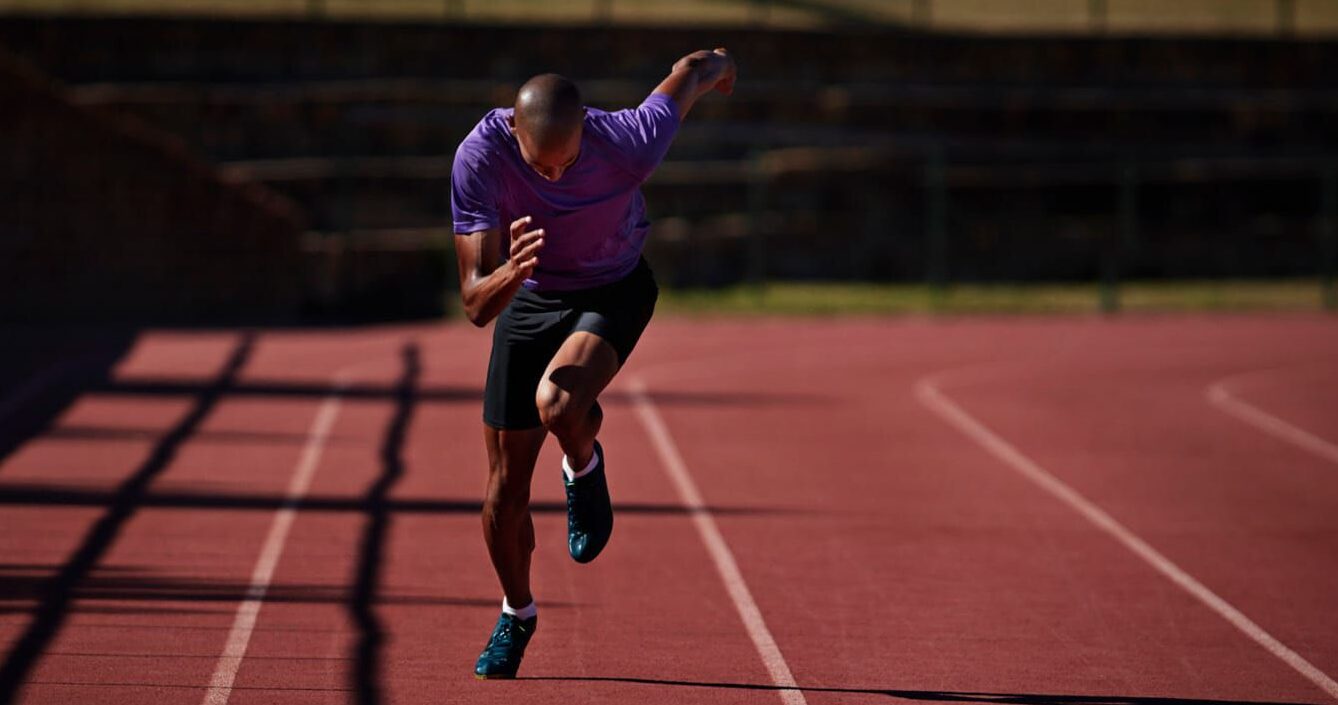The power of positive thinking plays a crucial role in athletic success. Having a positive mindset can enhance an athlete’s performance and overall well-being. Research suggests that positive thinking can improve athletic performance by removing mental obstacles. Athletes who believe in their abilities and maintain a positive attitude are more likely to push through challenges and achieve their goals. By cultivating a positive mindset, athletes can overcome self-doubt and negative self-talk, allowing them to perform at their best.
Overcoming self-doubt and negative self-talk is essential for athletes to reach their full potential. Mental blocks, such as low confidence and perfectionism, can hinder an athlete’s performance. However, with the help of sports psychologists, athletes can identify these mental blocks and develop strategies to overcome them. By addressing negative thought patterns and replacing them with positive and empowering beliefs, athletes can break through mental barriers and unlock their true potential. This process requires self-reflection, self-compassion, and a commitment to personal growth.
Mental preparation and visualization are key components of achieving athletic success. Visualization, or mental rehearsal, involves mentally imagining oneself performing successfully in a specific sport or event. By vividly imagining the desired outcome and the steps needed to achieve it, athletes can enhance their performance and increase their confidence. Sports psychologists work collaboratively with athletes to identify the challenges they face and develop visualization techniques tailored to their specific needs. Engaging in mental preparation and visualization exercises can help athletes build focus, improve technique, and enhance overall performance on the field or court.
Identifying and conquering mental blocks
One common mental block that athletes often face is the fear of failure and performance anxiety. This fear can stem from a variety of sources, such as the pressure to succeed, the fear of disappointing others, or the fear of not living up to one’s own expectations. It can lead to self-doubt and a lack of confidence in one’s abilities. However, overcoming this mental block is crucial for athletic success. Athlete mental training, which involves training the mind just as one trains the body, can be an effective way to conquer the fear of failure and performance anxiety. By developing a more rational philosophy about one’s own performance and building mental resilience, athletes can learn to manage their fears and perform at their best.

Another mental block that athletes often encounter is dealing with pressure and expectations. The weight of expectations, whether from coaches, teammates, or even oneself, can create immense pressure and stress. This pressure can lead to performance anxiety and hinder an athlete’s ability to perform at their best. However, sports psychology offers strategies to help athletes cope with pressure and manage expectations. By focusing on the present moment, setting realistic goals, and developing mental toughness, athletes can navigate the challenges of pressure and perform at their peak.
Managing setbacks and adversity is another crucial aspect of conquering mental blocks in sports. Athletes often face setbacks, such as injuries, losses, or periods of poor performance. These setbacks can be mentally challenging and can lead to self-doubt and a loss of motivation. However, with the right mindset and mental training, athletes can learn to overcome adversity and bounce back stronger. Sports psychology techniques, such as visualization, positive self-talk, and goal-setting, can help athletes develop resilience and navigate through setbacks. By developing a growth mindset and learning from setbacks, athletes can use adversity as an opportunity for growth and improvement.
Developing mental resilience and focus
Building confidence and self-belief is crucial for athletes to overcome mental blocks and achieve their goals. Athlete mental training plays a significant role in developing this confidence and self-belief. By training the mind just as they train their bodies, athletes can enhance their mental resilience and overcome any doubts or insecurities that may hinder their performance. Sports psychology literature offers valuable insights into understanding the psychology behind building confidence and self-belief. Setting realistic goals, visualizing success, and focusing on past accomplishments can all contribute to building a strong foundation of self-belief and confidence. By cultivating a positive mindset and reinforcing positive self-talk, athletes can develop the mental fortitude needed to conquer their mental blocks and achieve success in their athletic endeavors.
Enhancing concentration and focus is another key aspect of athletic success. Athletes need to be able to maintain their focus and block out distractions in order to perform at their best. Mentally tough athletes understand the importance of staying present and focusing on the task at hand.

By practicing mindfulness techniques and utilizing strategies such as visualization and imagery, athletes can improve their ability to concentrate and stay focused during training and competitions. The ability to maintain concentration even in high-pressure situations can significantly impact an athlete’s performance and help them overcome mental blocks that may arise.
Developing mental toughness and resilience is essential for athletes to overcome obstacles and achieve their goals. Mental toughness allows athletes to bounce back from setbacks and maintain their performance under challenging circumstances. Athlete mental training can help individuals develop the necessary coping skills and emotional management techniques to enhance their mental toughness. By learning to manage their emotions, stay motivated, and stay focused on the present moment, athletes can develop the resilience needed to overcome mental blocks and continue progressing towards their goals. Additionally, setting short-term goals and creating a plan for success can provide athletes with a roadmap to follow and a sense of direction. With the right mindset and mental training, athletes can conquer their mental blocks and achieve athletic success.
Strategies for goal setting and achieving athletic success
Setting SMART goals is a crucial strategy for achieving athletic success. SMART stands for Specific, Measurable, Achievable, Relevant, and Time-bound. By setting specific goals, athletes can clearly define what they want to achieve, whether it’s improving their speed, increasing their endurance, or mastering a new skill. Measurable goals allow athletes to track their progress and see tangible results, which can provide motivation and a sense of accomplishment. It’s important for goals to be achievable and realistic, as setting unrealistic goals can lead to frustration and demotivation. Relevant goals are aligned with an athlete’s overall objectives and aspirations, ensuring that they are meaningful and personally significant. Lastly, setting time-bound goals provides a sense of urgency and helps athletes stay focused and disciplined in their training. By following the SMART framework, athletes can effectively set goals that are specific, measurable, achievable, relevant, and time-bound, setting themselves up for success in their athletic endeavors.
Creating action plans and breaking goals into manageable steps is another important strategy for achieving athletic success. Once athletes have set their goals, it’s crucial to develop a plan of action that outlines the steps they need to take to achieve those goals.

Breaking larger goals into smaller, more manageable steps allows athletes to make progress incrementally and avoid feeling overwhelmed. For example, if an athlete’s goal is to run a marathon, they can break it down into smaller goals such as increasing their weekly mileage, improving their speed, and incorporating strength training into their routine. By focusing on these smaller goals and consistently working towards them, athletes can build momentum and steadily progress towards their ultimate objective. With a well-structured action plan in place, athletes can stay organized, motivated, and on track towards achieving their athletic goals.
Monitoring progress and adjusting strategies as needed is a crucial aspect of achieving athletic success. Regularly tracking and assessing progress allows athletes to identify what is working well and what may need to be adjusted or modified. By monitoring their progress, athletes can celebrate their successes, identify areas for improvement, and make necessary adjustments to their training or approach. This could involve seeking feedback from coaches or trainers, analyzing performance data, or reflecting on personal experiences. As athletes encounter challenges or obstacles along the way, they can use this information to adapt their strategies and find alternative approaches to overcome mental blocks or setbacks. By being flexible and open to change, athletes can continuously refine their strategies and increase their chances of achieving their athletic goals.
